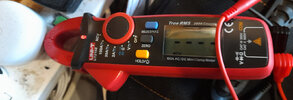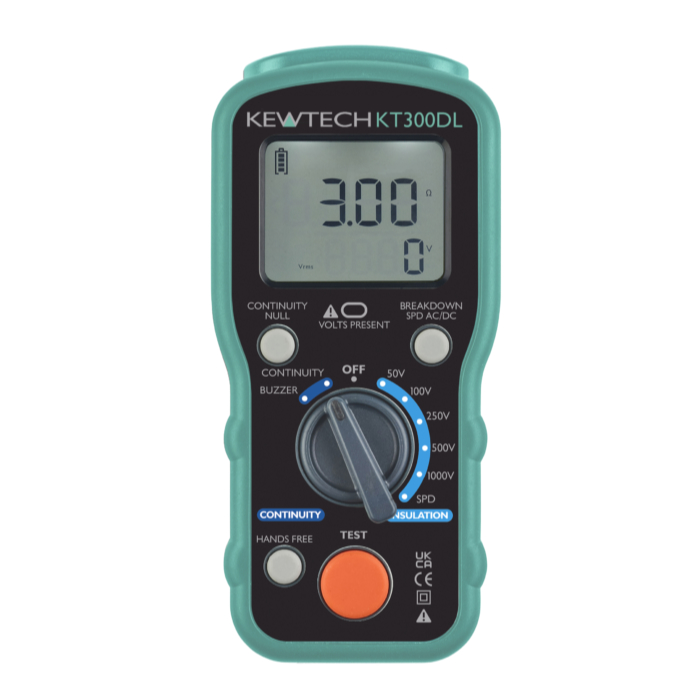I have in the main worked for large firms, like GEC Large Steam Turbines, and every item was calibrated including the crimp pliers. They were sent to our own calibration house, which held the truly traceable records, the only non calibrated item I had was a clamp on meter used only to test the mats on our stress relief equipment, on the strict instruction not to be used for anything else.
I have only worked for one firm where if caught without ones proving for dead equipment, it was instant dismissal, in Rock Savage. But as
@flameport points out it must use no batteries as batteries can fail, and have no selection device on it, so can't select wrong function, and be two prong, and the proving unit should step up the voltages so it shows it works at whole of the low voltage range. However in real terms I have only once been required to use one, and will normally use may multi-meter

seen here testing for live with the non contact voltage range, so reasonably sure dead before I remove any screws to gain access to used the leads to test, this is not the official way, but the way I do it. The clamp on jaws also allow testing of neutral wires for current to avoid the dangers of a borrowed neutral, however for years I used a neon screwdriver to alert for that eventuality.
Most places the meters used for loop impedance, low ohms, insulation, and RCD testing also recorded the results, same with the PAT tester in the latter years, so impossible for me to have used my own meters, I have had problems with auto recording where a foeman was caught using a VB program to alter the auto readings. And with PAT testing where we know the lead must pass as used to test the equipment, but had to test the lead on it own as well to record the results.
When I started work as an apprentice we were required to provide our own hand tools, but as time has gone by, that has been reversed, and in the main now forbidden to take your own hand tools to work. This does mean we don't have the expense of maintaining these tools, the same has happened with PPE equipment, and my feet are damaged due to being forced to ware safety boots provided, I often could not select my own.
As a away worker it was nearly impossible for me to carry my own tools to Algeria, Hong Kong, and the Falklands, so they were provided in my case since 1980 when I first went abroad, I gained tools, often when job was finished told I could keep them, not stolen as such, and I have also lost tools, and in the early years the tax system included a tool allowance so I was not taxed on the money spent on tools. Today only the self employed can do that, and as self employed clearly one does need to buy ones own tools.
The tool for testing earth rods I have used many times, I have fitted 100's of earth rods, but all on one job, and the test equipment was hired. When test equipment is hired it needs to be calibrated for each hire, so often a minimum hire of one week. Often the hire is to cover for ones own equipment to go away for calibration, and when I last looked about £60 per week. However for multi-meters, screwdrivers etc. One would normally buy, having a small meter in my pocket like the one shown, is handy, but in the main the test set to do a EICR, EIC, or PAT testing is not really small enough to carry in ones pocket. However size and weight has to be a consideration, working on the building of Sizewell 'B' and Heathrow terminal 5 I had to climb up down ladders all day, so I wanted hands free, so all tools carried in a bag over my shoulder. Even doing EICR's in some factories it involved a lot of walking, I was provided with a tricycle on one site, some times Landrovers, some times vans, often these were shared, so still all ones tools had to be carried in some way.
Clearly a multi function test set reduces what needs to be carried, on some jobs my main tool was a laptop, first one plugs in the laptop to the PLC to see what is wrong, I envied the guys with small laptops, far easier to carry.
We call ourselves electricians, but really there is a huge difference between the jobs I have done. Petrochemical was so different to shop fitting. And as to house bashing, when I started it was considered as the job you did while looking for a proper job, but today that has all changed. So as to what tools, that has also changed, I know as an installation electrician I would never use a moving spanner, it may mark the gland, as a maintenance electrician not unknown to use pipe wrenches.
And only one job did I have to use lubricant on the Hawk glands to stop the seals being damaged when fitting them. Falklands was a problem, often the rotating wing aircraft could not land, and one had to jump out with tool box and over night bag, I remember well landing in the peat, it was only a foot or two off the ground when I jumped, but did not stop sinking into the peat until overnight bag and tool box hit the peat, weight of tools can be a huge problem.
So to get an answer you need to say where you are looking for work, as said domestic has changed, I remember my son starting out, at first he did no inspection and testing, and he was considered semi-skilled wiring new houses, latter he got his C&G 2391 and he was the guy going around estate to estate doing the inspection and testing, so before he had his C&G 2391 he did not need any test equipment.

 www.test-meter.co.uk
www.test-meter.co.uk




